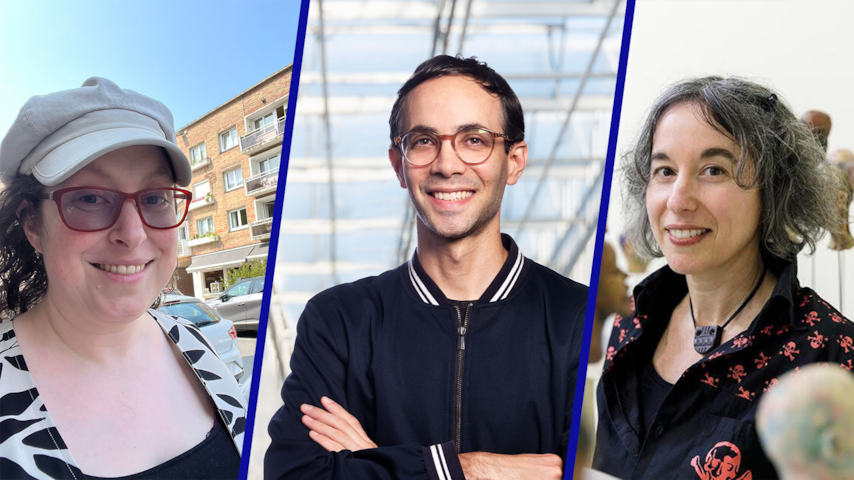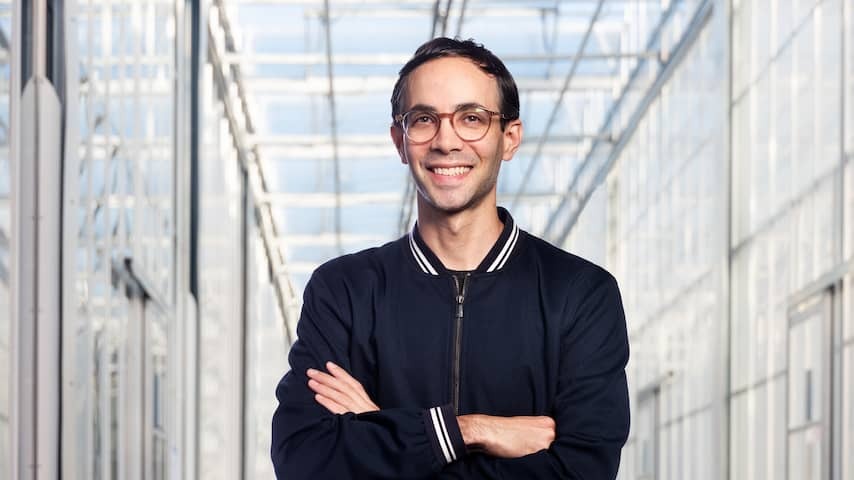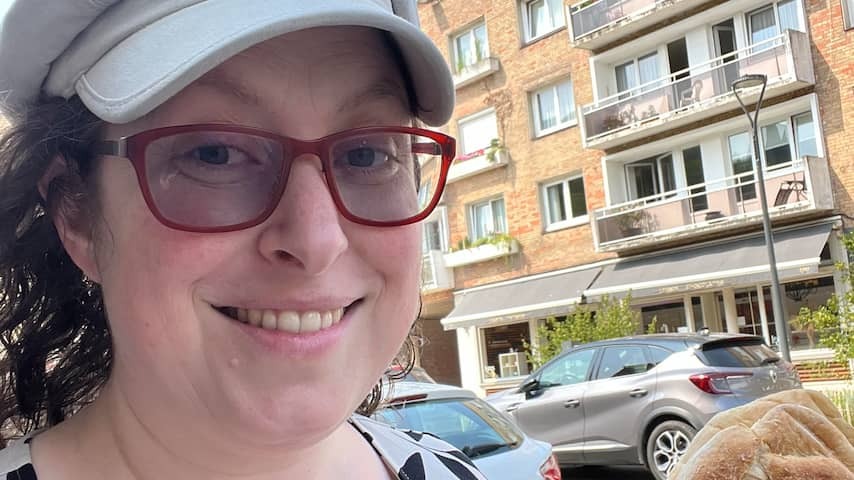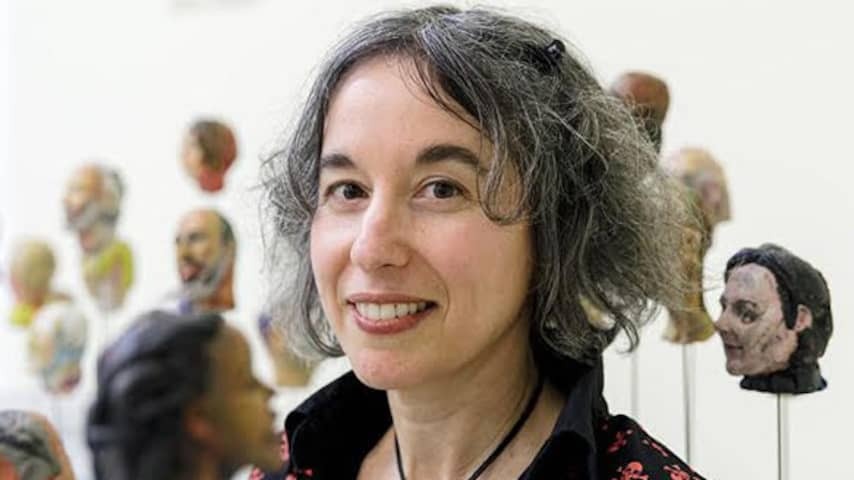
Joden in Nederland zijn tegenwoordig vaker slachtoffer van scheldpartijen en vandalisme. Drie Israëlische Joden in Nederland vertellen hoe ze de sfeer zagen veranderen na 7 oktober 2023, zowel op straat als online. Ondanks alles blijven ze het gesprek aangaan.
“Een paar weken na 7 oktober kreeg mijn zoon op school naar zijn hoofd geroepen: ‘Alle Joden moeten dood'”, vertelt de 44-jarige Nitzan Shepher. Een jaar later gebeurde op zijn nieuwe middelbare school iets soortgelijks. De scholen pakten het volgens Nitzan netjes op, maar adviseerden ook om “niet te veel op te vallen”.
Shepher ziet hoe in een korte tijd in haar stad Eindhoven steeds openlijker angst wordt gezaaid tegen Joden. Zo werden er hakenkruizen gespoten op auto’s van mensen met Israëlische afkomst. Door de stad hingen stickers met “Hitler had gelijk” en de rabbijn van Eindhoven is bespuugd.
Volgens de Rotterdamse Efrat Zehavi (50) begonnen de moeilijkheden niet na de aanval van Hamas op 7 oktober 2023, maar toen Israël Gaza kort daarna binnenviel. “Toen dacht ik: het is niet meer handig om Hebreeuws op straat te praten.”
David Katzin (40) herinnert zich juist hoe hij zich afgelopen november onveilig voelde door de Maccabi-voetbalhooligans. “Zij haten linkse Israëliërs, die zien ze als een grote vijand. Het was niet goed met mij afgelopen als ik ze was tegengekomen, een Israëliër die Arabisch spreekt en met Palestijnen optrekt.”
De drie geboren Israëliërs zien de spanningen om verschillende redenen toenemen. In Nederland komt dat voor een groot deel door onwetendheid, denken ze. Tussen Israëliërs en Joden onderling leidt een eeuwenoud gevoel van angst tot een groeiende kloof.
‘Netanyahu misbruikt dat trauma’
Zehavi ziet de misverstanden in haar woonplaats Rotterdam. Ze ziet hoe veel mensen eigenlijk geen moeite hebben met Joden, maar met Israëliërs die de bezetting steunen. “Maar ze halen die twee door elkaar”, zegt ze.
“Het doet me pijn dat ik niet trots kan zijn op de daden van mijn land. Ik ben het niet eens met de Israëliërs die de oorlog steunen, maar ik ken hun angstige gevoel. Dat zit diep in de cultuur, van de diaspora tot de Holocaust. Premier Netanyahu misbruikt dat trauma. In Israël zijn mensen gehersenspoeld. Bovendien creëert de bezetting van Gaza juist antisemitisme.”
Shepher vindt dat haar kinderen open en trots mogen zijn op hun achtergrond. Maar ze wordt steeds terughoudender. “Ik denk steeds vaker: moet ik wel tegen mensen zeggen dat ik Joods of Israëlisch ben? Die gedachte had ik vroeger nooit. Ik wil niet in angst leven.”
Katzin hekelt de oorlog en de regering van de Israëlische premier Benjamin Netanyahu. Hij schaamt zich voor zijn Israëlische identiteit en voelt zich meer verbonden met zijn Joodse wortels.
Geen discussie, maar beledigingen
De drie Israëliërs gaan het gesprek niet uit de weg. Shepher reageert onder nieuwsberichten op Facebook vanuit een Israëlisch perspectief, omdat sommigen “bepaalde nuances niet kennen”. Als reactie noemen mensen haar “kindermoordenaar” en “genocideaanbidder”, ook onder oude Facebook-foto’s waar ze met haar kinderen op staat.
Zehavi voelt zich als Israëlische verplicht om zich uit te spreken tegen alle ellende in Gaza en op de Westelijke Jordaanoever. “Ik word minder snel van antisemitisme beschuldigd. Sommige vrienden van me durven daarom niet van zich te laten horen.”
Kritiek op Israël is geen antisemitisme, benadrukt Katzin. Hij zag de pro-Palestijnse protesten snel opkomen op zijn werk bij Wageningen University & Research. In een groepschat met ongeveer twintig Joodse mensen werd voorgesteld om te klagen over de demonstraties.
Katzin wierp in dat gesprek tegen dat iedereen zijn mening mag verkondigen. Na een korte ruzie viel de actieve chat volledig stil. Katzin: “Volgens mij is er nu een chat zonder mij.”
Noodzaak om verhaal te delen
Zehavi merkt de verdeling ook binnen de Israëlisch-Joodse gemeenschap in Nederland. Ze stond al lange tijd op een mailinglijst van Israëlisch-Nederlandse stichtingen. Maar in die berichten kropen die stichtingen volgens haar erg in de slachtofferrol. Ze haalde zichzelf van de lijst af. “Mijn geduld raakt na dik anderhalf jaar ook op.”
Katzin neemt tegenwoordig deel aan activiteiten van een Joodse stichting in Wageningen. Het geeft hem voldoening om bij te dragen aan de “lange Joodse geschiedenis” van Nederland. Katzin: “Mijn Joodse identiteit is meer dan alleen Israël.”
Shepher is geschrokken dat de discussiecultuur in een korte tijd sterk is verhard. Als geschiedenisdocent is ze gewend het gesprek juist aan te gaan, zeker over het complexe conflict tussen Israëliërs en Palestijnen. Ze twijfelde ook om haar verhaal te delen met NU.nl. “Toch voel ik de noodzaak om dit te delen. Als niemand iets vertelt, dan zitten wij er maar mee.”
Jews in the Netherlands are increasingly victims of verbal abuse and vandalism. Three Israeli Jews in the Netherlands talk about how they saw the atmosphere change after October 7, 2023, both on the street and online. Despite everything, they continue to engage in conversation.
“A few weeks after October 7, my son was yelled at at school: ‘All Jews must die,'” says 44-year-old Nitzan Shepher. A year later, something similar happened at his new high school. According to Nitzan, the schools handled it properly, but also advised “not to stand out too much.”
Shepher sees how in a short time in her city of Eindhoven fear is increasingly openly sown against Jews. For example, swastikas were sprayed on cars of people of Israeli descent. Stickers with “Hitler was right” were hung throughout the city and the rabbi of Eindhoven was spat upon.
According to Efrat Zehavi (50) from Rotterdam, the difficulties did not begin after the Hamas attack on October 7, 2023, but when Israel invaded Gaza shortly afterwards. “Then I thought: it is no longer useful to speak Hebrew on the street.”
David Katzin (40) remembers how he felt unsafe last November because of the Maccabi football hooligans. “They hate left-wing Israelis, they see them as a big enemy. It wouldn’t have ended well for me if I had met them, an Israeli who speaks Arabic and hangs out with Palestinians.”
The three native Israelis see the tensions increasing for various reasons. In the Netherlands, this is largely due to ignorance, they think. Among Israelis and Jews, an age-old feeling of fear leads to a growing gap.

‘Netanyahu abuses that trauma’
Zehavi sees the misunderstandings in her hometown of Rotterdam. She sees how many people actually have no problem with Jews, but with Israelis who support the occupation. “But they confuse the two,” she says.
“It hurts me that I cannot be proud of the actions of my country. I do not agree with the Israelis who support the war, but I know their anxious feeling. That is deeply ingrained in the culture, from the diaspora to the Holocaust. Prime Minister Netanyahu abuses that trauma. People in Israel are brainwashed. Moreover, the occupation of Gaza actually creates anti-Semitism.”
Shepher believes that her children should be open and proud of their background. But she is becoming increasingly reluctant. “I increasingly think: should I tell people that I am Jewish or Israeli? I never had that thought before. I don’t want to live in fear.”
Katzin condemns the war and the government of Israeli Prime Minister Benjamin Netanyahu. He is ashamed of his Israeli identity and feels more connected to his Jewish roots.

No discussion, but insults
The three Israelis do not avoid the conversation. Shepher responds to news items on Facebook from an Israeli perspective, because some “do not know certain nuances.” In response, people call her “child murderer” and “genocide worshiper”, even under old Facebook photos where she is with her children.
As an Israeli, Zehavi feels obliged to speak out against all the misery in Gaza and the West Bank. “I am less likely to be accused of anti-Semitism. Some of my friends therefore do not dare to make themselves heard.”
Criticism of Israel is not anti-Semitism, Katzin emphasizes. He saw the pro-Palestinian protests rise quickly at his work at Wageningen University & Research. In a group chat with about twenty Jewish people, it was suggested to complain about the demonstrations.
Katzin countered in that conversation that everyone is allowed to express their opinion. After a brief argument, the active chat went completely silent. Katzin: “I think there is now a chat without me.”

Need to share story
Zehavi also notices the division within the Israeli-Jewish community in the Netherlands. She had been on a mailing list of Israeli-Dutch foundations for a long time. But in those messages, according to her, those foundations were very much in the victim role. She removed herself from the list. “My patience is also running out after more than a year and a half.”
Katzin now participates in activities of a Jewish foundation in Wageningen. It gives him satisfaction to contribute to the “long Jewish history” of the Netherlands. Katzin: “My Jewish identity is more than just Israel.”
Shepher is shocked that the discussion culture has hardened greatly in a short time. As a history teacher, she is used to engaging in conversation, especially about the complex conflict between Israelis and Palestinians. She also hesitated to share her story with NU.nl. “Yet I feel the need to share this. If no one tells anything, then we are stuck with it.”